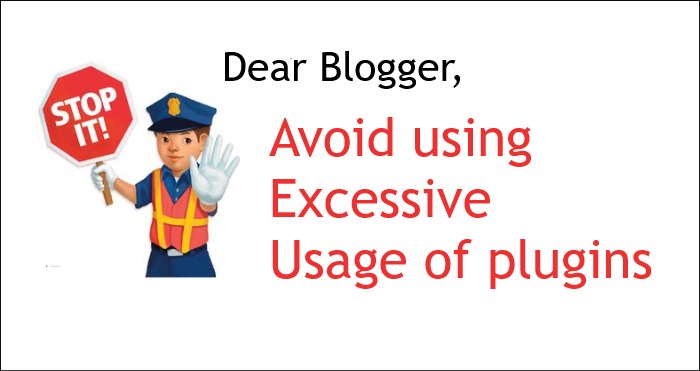Hi my dear friends, in this day and age when competition is fiercer than ever everybody wants to leave no stone unturned when it comes to SEO optimization. In other words, everybody wants his website to be more and more SEO friendly. Whether it is on-page SEO or a balanced keyword density or it is website load time, all these and many other factors cumulatively affect your website’s ranking.
Yet at the same time we cannot ignore the fact that all these things just mentioned fail to do any magic if your content is not up to scratch. So, what is most important is a well-researched, lucidly written content and everything comes after that.
Guys, in this post we will be discussing load time (website loading time) and how we can reduce it to a minimum.
In 2010, Google acknowledged the importance of site-speed when Google’s web spam team head Matt Cutts revealed that many members of Google team were willing to make the page speed a ranking factor because the page speed affects the user engagement a great deal and just a delay of few milliseconds can turn around a visitor from a website.
To check out the deleterious effects of slow speed of a website on its user engagement Google made its own search website a little bit slower and to its dismay found out that the longer the loading time of a website is the more likely it is that visitor will close the website before it is fully loaded.
Quoted from Google officials
“Our experiments demonstrate that slowing down the search result page by 100 to 400 milliseconds has a measurable -0.2% to -0.6% impact on the number of searches per user (averaged over four or six weeks depending on the experiment). That’s 0.2% to 0.6% fewer searches for just making a website less than half a second slower!”
Google included website loading time as a ranking factor in its search algorithm
Seeing the effect of a website’s speed on the user engagement Google officially incorporated website speed into its ranking algorithm. But at the same time it also added that the new algorithm ( website’s speed) would affect only one percent search queries. The thing is Google wants to keep things in balance. On the one hand Google wants to encourage high speed websites, but simultaneously it does not want a website to compromise with the quality of its content and relevancy. Google maintains that if your website has valuable and unique content, your website’s ranking will remain unaffected in spite of its slow speed.
So in this post we will see the ways using which we can make our website load faster..
Selection of a well coded theme
Guys, first thing first, what creates most of your website’s HTML, CSS or JSS content? Nothing but WordPress. So a well written theme with compact HTML, CSS and JS may play a really big role in decreasing the page load time of your website.
If you want to build a professional website, say no to bloated themes.
What is a bloated theme?
A bloated theme is a theme cluttered with a lot of built-in functionalities which are hardly made use of by a user. For example thousands of short codes, a number of sliders and many integrated plugins etc.
A website that uses such themes are bound to be slow because. Because such a theme calls so many unused JS, CSS and PHP functions which are indeed not of any use. Moreover the code of these kind of themes is scattered and not well-organized.
Nowadays most of the companies just to woo the customers equip their themes with a variety of unnecessary features. These features, some of which are unlikely to be used ever, make the theme very heavy, which consequently results in a higher loading time.
So you should be very careful about the theme selection. If you like a particular theme, first you should copy its demo link and check this theme’s loading time with the help of gtmetrix.com or pingdom page speed test.
When it comes to the loading time of a website, in my experience, themes made by the following companies are the best:
- StudioPress
- Elegant Themes
- Swift Themes (swiftthemes.com)
- Theme Junkie (theme-junkie.com)
- MyThemeshop
Themes from these companies are considered SEO friendly and their codes are not bloated at all. We use Divi theme by Elegant Themes because it is not only SEO friendly but also comes packed with immense functionality. All these theme makers follow WordPress.Org coding guideline and norms.
Cut the use of plugins as much as possible
It is true that if you are a WordPress user, you cannot steer clear of using plugins. But it is really not advisable to add plugins for every single functionality because it can make your website tremendously slow. Each plugin added, you should know, is extra weight to pull. Why is that? The thing is that every plugin comes with its own CSS and JS files and execute probably many PHP functions which ultimately results in the increased load over database server.
With the help of P3 profiler plugin, you can know which plugin is taking advantage of more resources. If you find out that a particular plugin is using CPU resources excessively, you should eliminate that plugin and use some other alternative to it.
Your hosting server should be fast enough
Website load time basically and the most depends upon the hosting server being used. Even if everything is okay but your hosting provider is letting you use only a slow server, your website will be slow to load. To find a good host is like looking for a needle in a haystack. Most of hosts with an eye toward more and more profit burden a server with more users than the server’s capacity, which obviously mars the overall performance of a server.
After trying out almost all popular hosts, I have come to conclusion that only the following two companies can be relied upon:
As far as HostGator and BlueHost are concerned, they are no longer the companies which they used to be. Both companies are selling cheap hosting to reel in more and more customers without any regard to server and support quality.
Use Cloudflare
Cloudflare is a free cloud security, caching and CDN provider service, which I would say every webmaster should use for his website. Cloudflare can increase the speed of a website many times. What is more, it keeps the site safe from unwanted automatic boat generated traffic.
Use a good caching plugin
Whenever a WordPress page is opened, its database server is put to work. It means every time you open a page, a PHP process runs, which use the database server. Now it takes no rocket science to guess that it will undoubtedly slow down the database server.
A caching plugin can create a static HTML version of your dynamic website and can serve it to end-users. How is it useful? It is immensely useful because database server does not have to work again and again. Besides static pages are always faster than the dynamically generated pages.
If you want to use a free caching plugin, W3 Total Cache is no doubt the best choice. But if you are not too tight on your budget and are ready to shell out a few bucks, your best option is Wp Rocket caching plugin. It is a novel plugin and really has an edge over other caching plugins. In comparison with other caching plugins, this plugin manages site loading time much more effectively.





